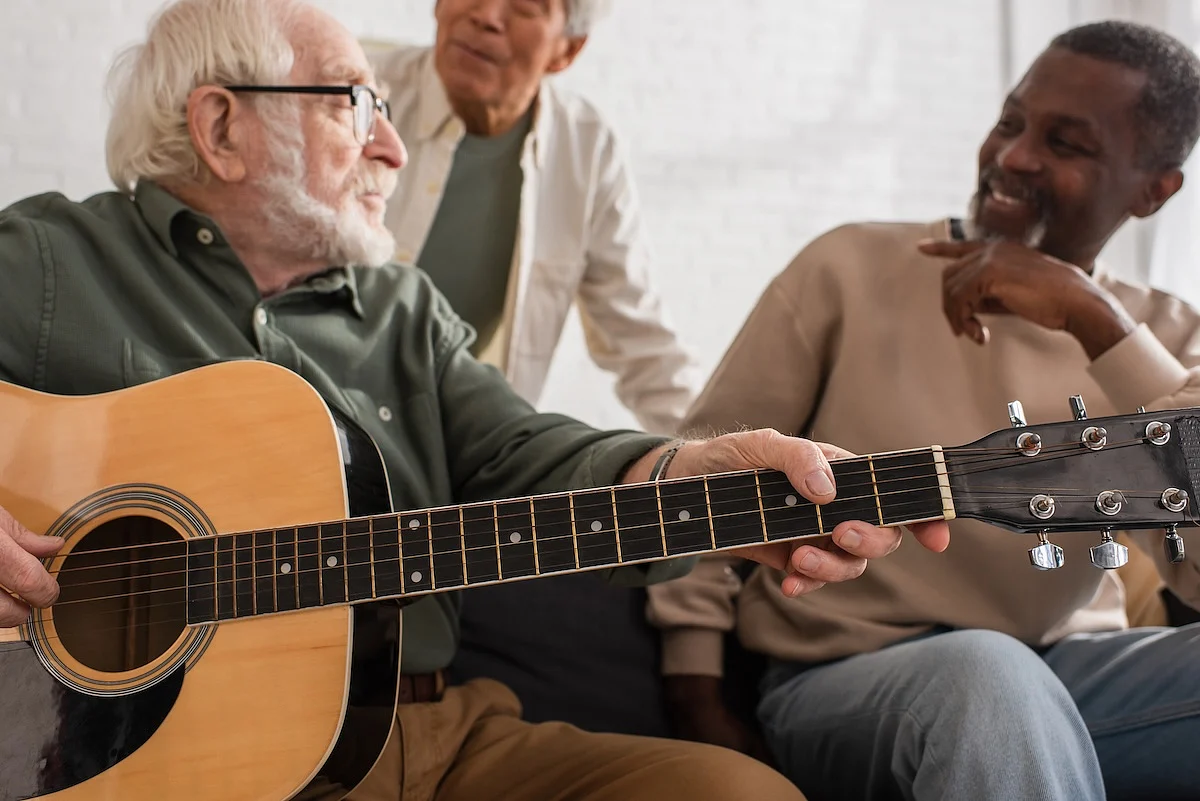Monday - Friday 9am to 6pm. Saturday 9am-2pm and Sunday 9am-1pm.
Prescriptions are available for in store pick up, curbside pick up and delivery.
Get Healthy!

- Dennis Thompson
- Posted July 17, 2025
Playing A Musical Instrument Might Help Aging Brains
Want to help maintain your brain health as you age?
Then pick up a guitar, start tickling a piano’s ivories or join a band.
Playing an instrument can promote a youthful pattern of brain activity, researchers reported July 15 in the journal PLOS Biology.
Specifically, older musicians were better able to understand speech in noisy situations, thanks to more brain power promoted by their musical training, researchers said.
“Just like a well-tuned instrument doesn’t need to be played louder to be heard, the brains of older musicians stay finely tuned thanks to years of training,” researcher Yi Du, a professor at the Chinese Academy of Sciences in Beijing, said in a news release.
“Our study shows that this musical experience builds cognitive reserve, helping their brains avoid the usual age-related overexertion when trying to understand speech in noisy places,” Du added.
Normal aging is typically associated with a decline in people’s vision and hearing, researchers said in background notes. As a result, seniors’ brains tend to work harder to compensate for flagging senses.
To see whether musical training might help seniors better compensate, researchers used functional MRI scans to measure the brain activity of 25 older musicians, 25 seniors who don’t play an instrument, and 24 young non-musicians.
All were asked to identify syllables masked by noise sounds, while researchers tracked their brain activity.
Results showed that older musicians were better able to identify syllables compared to their peers.
Brain scans revealed that music-playing seniors exhibited brain patterns that resembled those of younger people, researchers said.
Harvard Medical School defines cognitive reserve is the brain’s ability to find alternate ways of getting a job done, the result of a lifetime of education and curiosity.
The new study supports a hypothesis called “Hold-Back Upregulation,” which holds that the cognitive reserve produced by musical training promotes more youthful brain patterns, making it easier to manage the effects of aging, researchers said.
They said future studies should investigate whether other means of improving cognitive reserve, such as learning a new language, exercising, taking classes or solving puzzles, might help seniors perform better on memory and attention tasks.
“A positive lifestyle helps older adults cope better with cognitive aging, and it is never too late to take up, and stick with, a rewarding hobby such as learning an instrument,” lead researcher Lei Zhang, a professor at the Chinese Academy of Sciences, said in a news release.
More information
Harvard Medical School has more on music and brain health.
SOURCE: PLOS, news release, July 15, 2025





